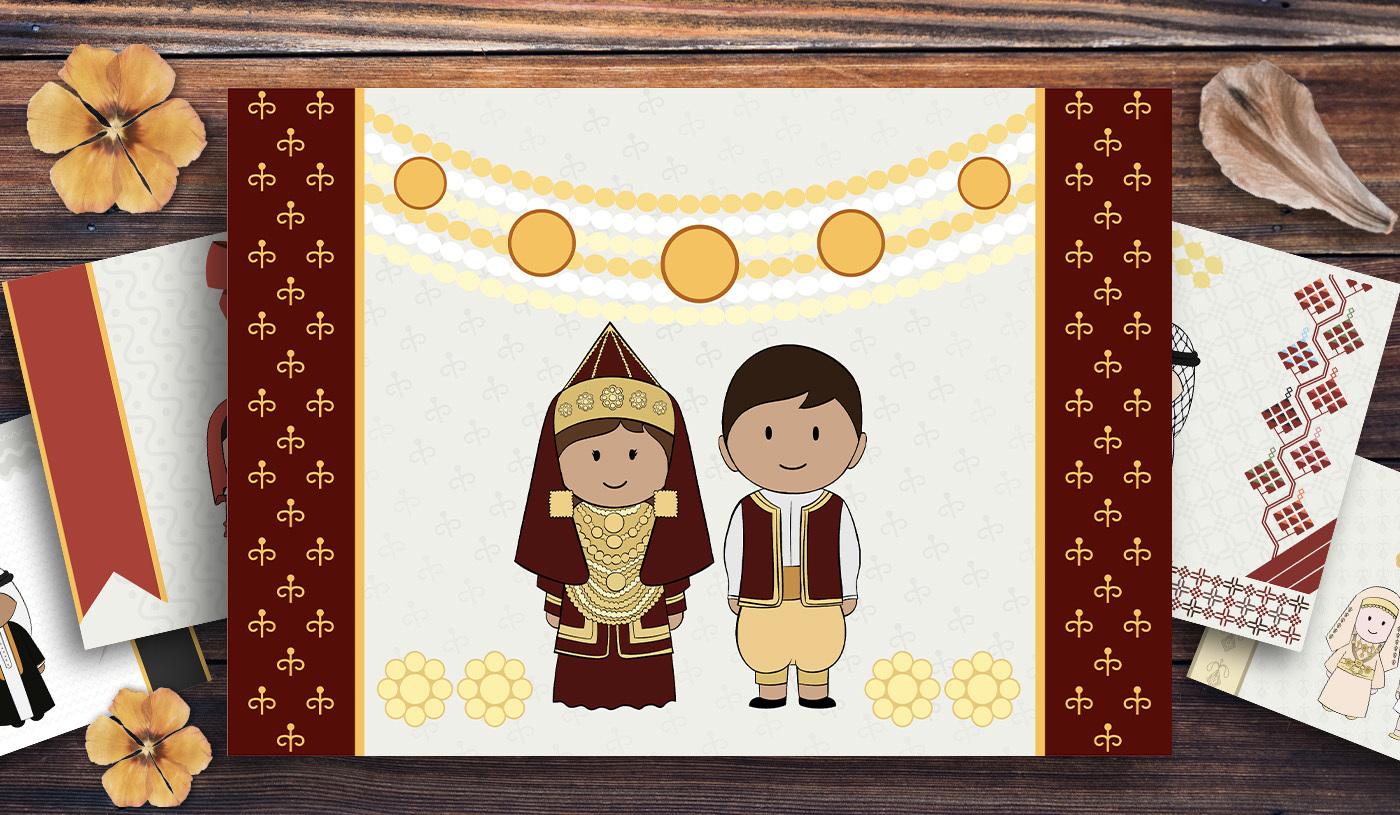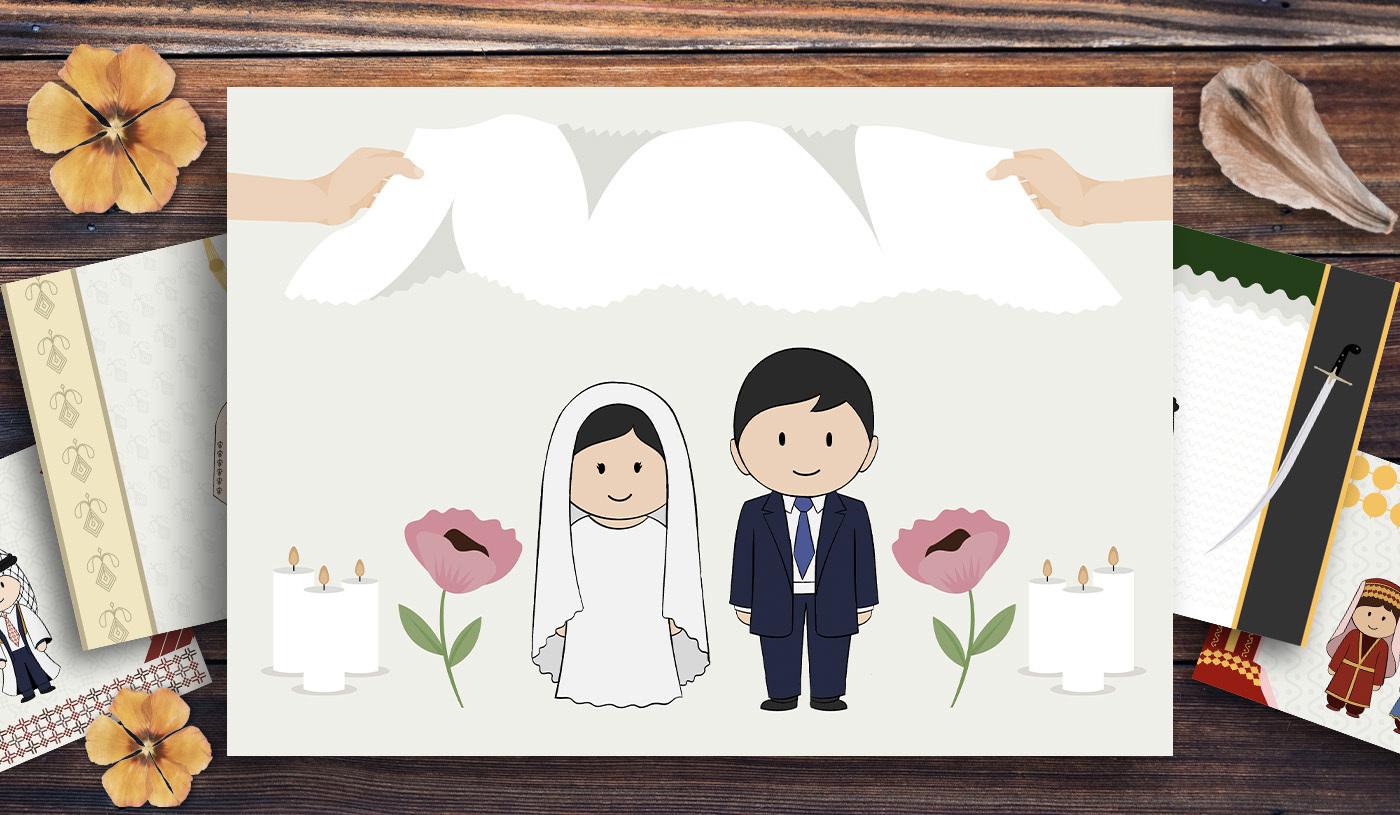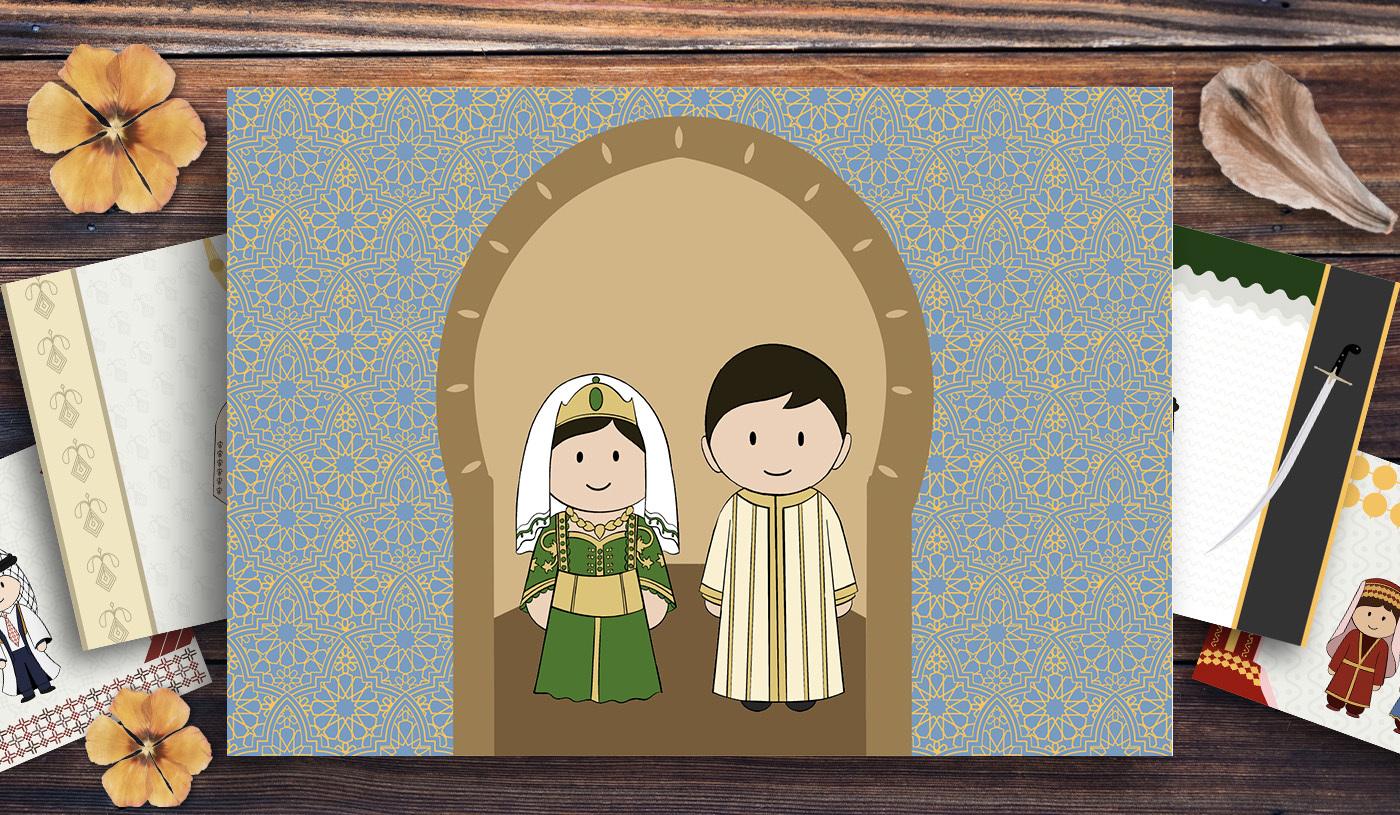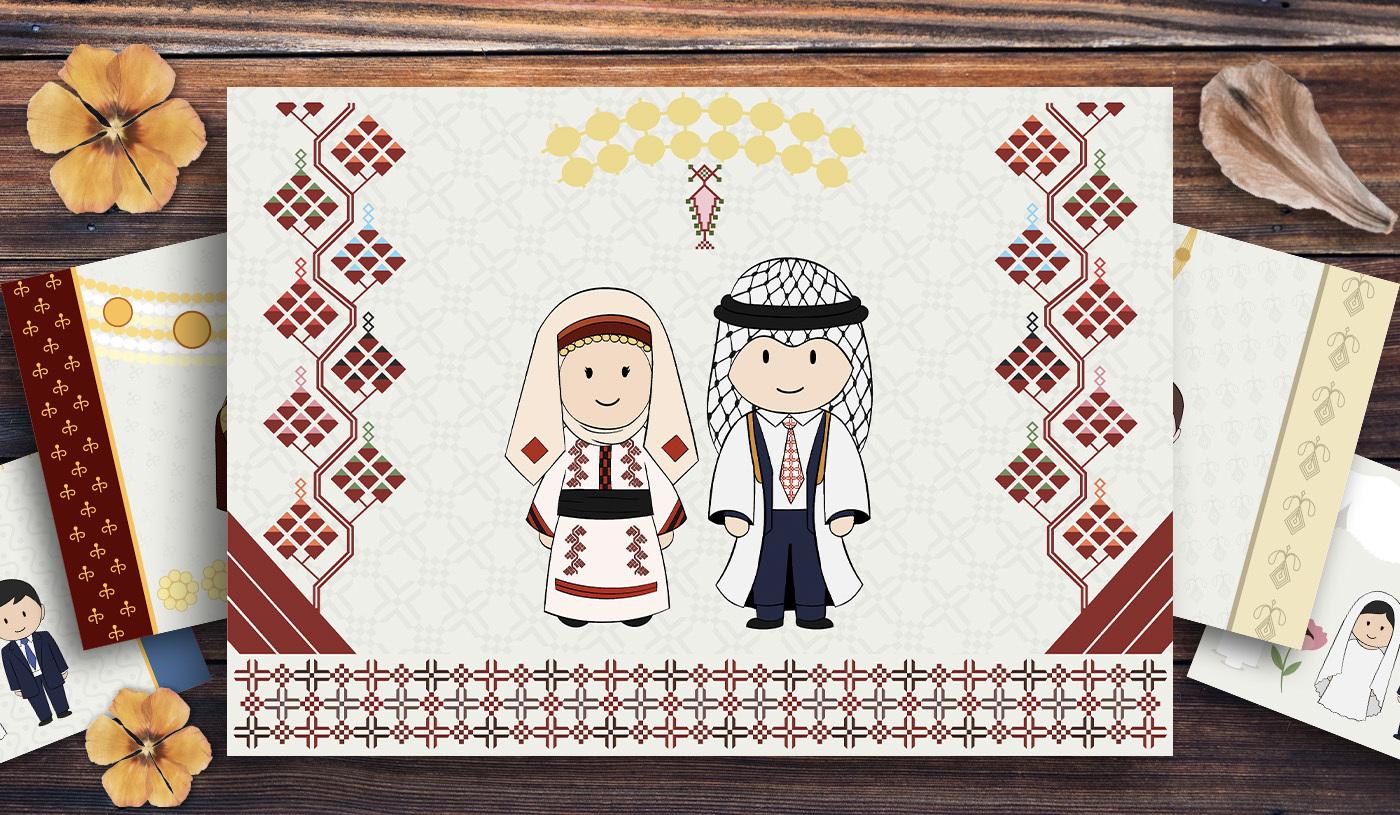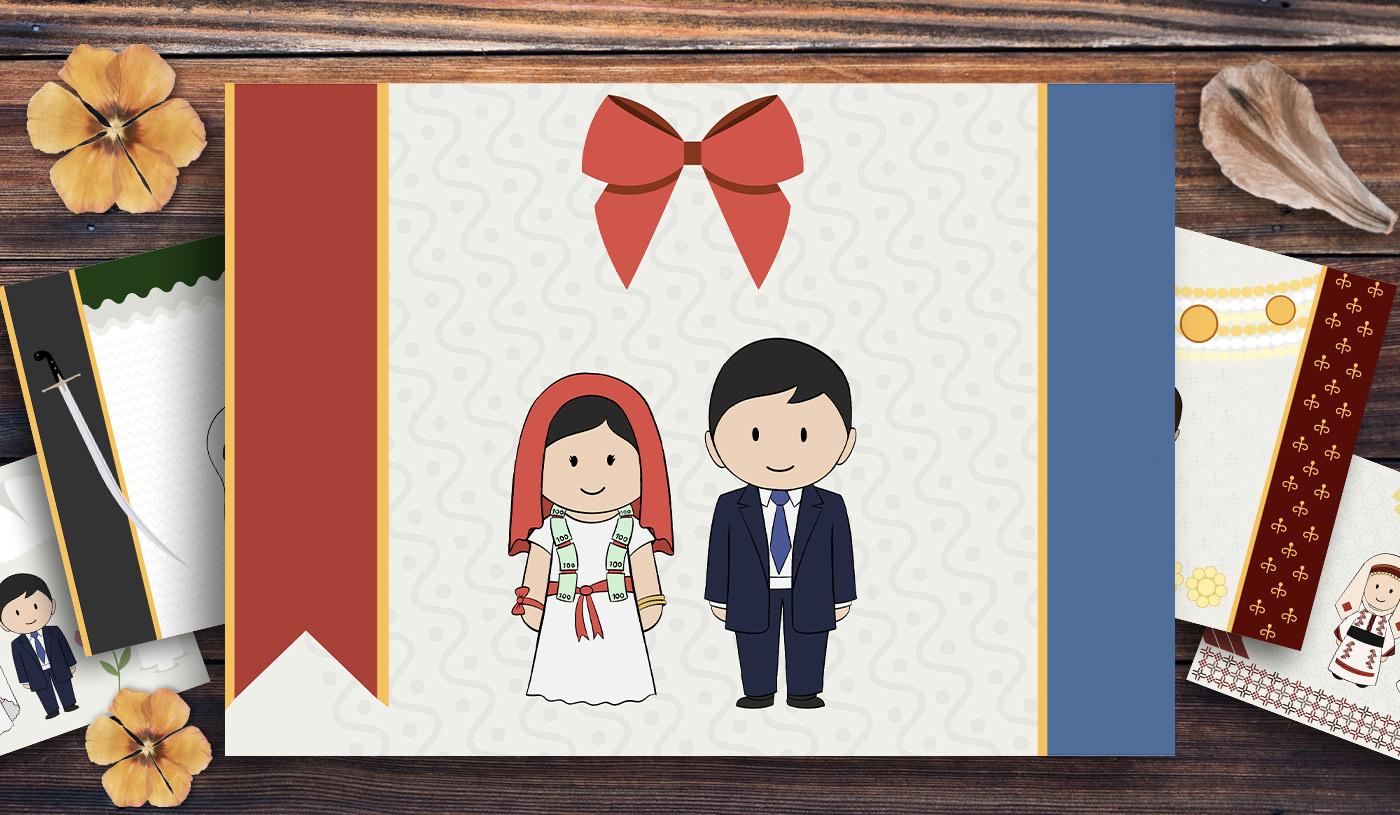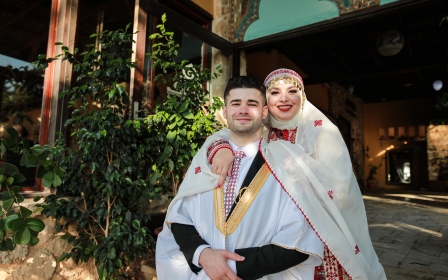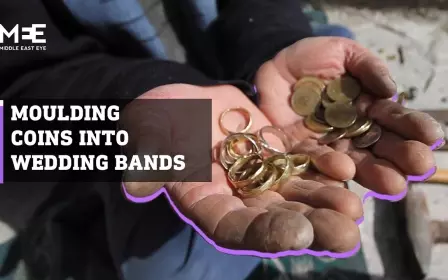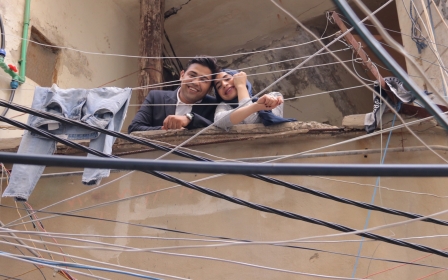Wedding traditions from five countries across the region
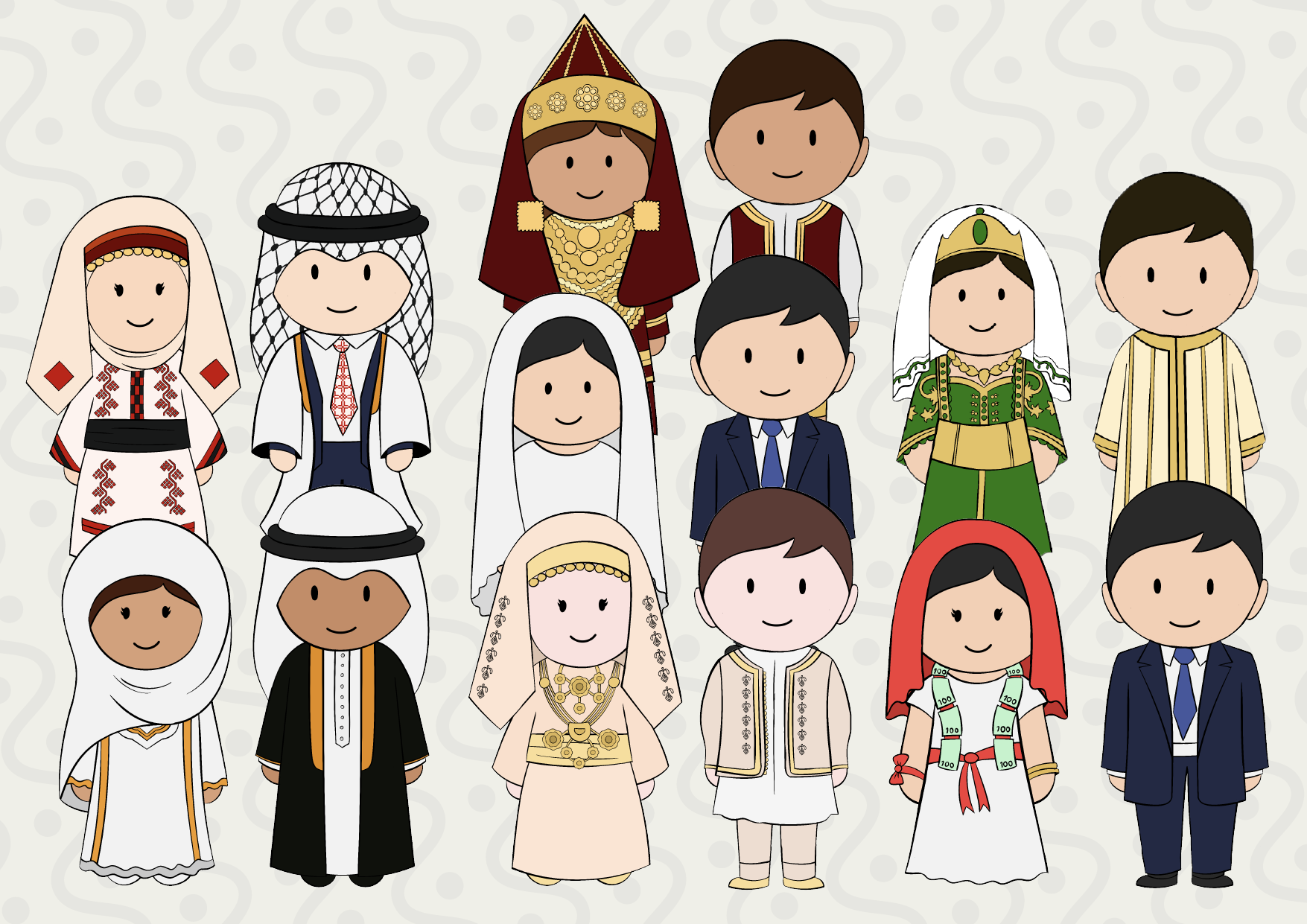
When it comes to weddings, the Middle East and north Africa region is full of unique and vibrant traditions. Some of them have been carried out for centuries, while others have been fused with more modern variations and adapted to suit the modern day.
In our wedding series, we delved into the world of celebrations, taking a look at the variety of intricate wedding attires, festivities, religious rites and mouth-watering foods.
From rich symbolism such as the newlyweds dipping their hands in honey to represent a sweet life together, to make-up designed to ward off the evil eye, many of the traditions have roots in ancient times.
These traditions, which may vary between families and areas, can hold particular significance for both the families involved, as well as the country’s culture.
Here, we have collated our wedding series, so you can have everything you need to know about these wedding traditions right at your fingertips.
New MEE newsletter: Jerusalem Dispatch
Sign up to get the latest insights and analysis on Israel-Palestine, alongside Turkey Unpacked and other MEE newsletters
1. Algeria
From the richly coloured jewels that adorn bridal outfits, to make-up that's carefully painted on the bride’s face to ward off the evil eye, many of the traditions witnessed at Algerian weddings have been inherited from the historical elite and royalty.
One of the most prized possessions for an Algerian bride on her big day is the trousseau, a package containing all of her jewels and outfit changes, of which there are up to seven.
The rotation of outfits is called the tasdira, with the bride showcasing iconic outfits which pay homage to their city, ancestral background and heritage. Some of the outfits may even be inspired by the groom’s culture.
2. Iran
By Alex Shams
At the heart of Iranian wedding rituals is the “table of commitment” or sofrah aqd, on which lay ornamental bread, cheese, and green herbs, tied together with flowers and ribbons. Also on the table are golden coins, almonds and walnuts, painted eggs, sweet pastries, and rose water.
Each element of the table serves a different symbolic purpose. The spices and herbs protect from the evil eye. Eggs and nuts represent fertility and abundance, while coins represent prosperity. Pastries point to the sweetness of a shared life, and the mirror and candles represent the bright future ahead.
On their wedding day, the couple will be seated in front of the sofreh aqd, and will dip their fingers in a bowl of honey before feeding it to each other, to signify the sweetness of their lives together.
3. Morocco
By Aida Alami
Moroccan weddings can often span days and involve many traditions that have survived centuries to display the culture’s richness.
Some brides can wear up to seven different outfits leading up to the big day, each more lavish and elaborate than the other.
A key tradition apparent at most Moroccan weddings is the amaria - a bejewelled roofed platform that is carried by men while the bride sits inside it.
The amaria was historically simple in design, made from wood and was reserved for noble families and the elite. Today it is used at almost all weddings and is much more flashy.
4. Palestine
Attending a Palestinian wedding is like witnessing a microcosm of Palestinian culture and all it holds dear: family, love, music, community, and land.
The ceremonies and traditions of Palestinian weddings will often spill into several days, sometimes even a week.
One of the most distinctive features of a Palestinian wedding is the zaffe, known as the wedding march. This procession is marked by singers, musicians, dancers, and wedding guests who escort the bridal party: they may escort the groom to the bride’s house, or the bride and groom to the church or the mosque.
5. Turkey
Turkish weddings are laced with unique and somewhat unconventional traditions, many of which stem from ancient times as well as religious rites.
There are some traditions, such as the salty coffee used as a test of the groom's temprement which are well known. However, some are a little more unusual. Rather than the typical bachelor's celebrations which many are accustomed to, in some parts of Turkey, on the morning of his wedding the groom suffers from different sorts of abuse at the hands of his best friends. They make him walk around the city barefoot, cover him in sticky substances, or they might ask him to declare his love from the minaret of their local mosque.
In some families, traditions will also include the groom sprinkling rice, wheat, sugar, and sometimes money over his new wife’s head before entering their new home.
This represents his wish for wealth, abundance, and happiness in their marriage.
Middle East Eye delivers independent and unrivalled coverage and analysis of the Middle East, North Africa and beyond. To learn more about republishing this content and the associated fees, please fill out this form. More about MEE can be found here.


